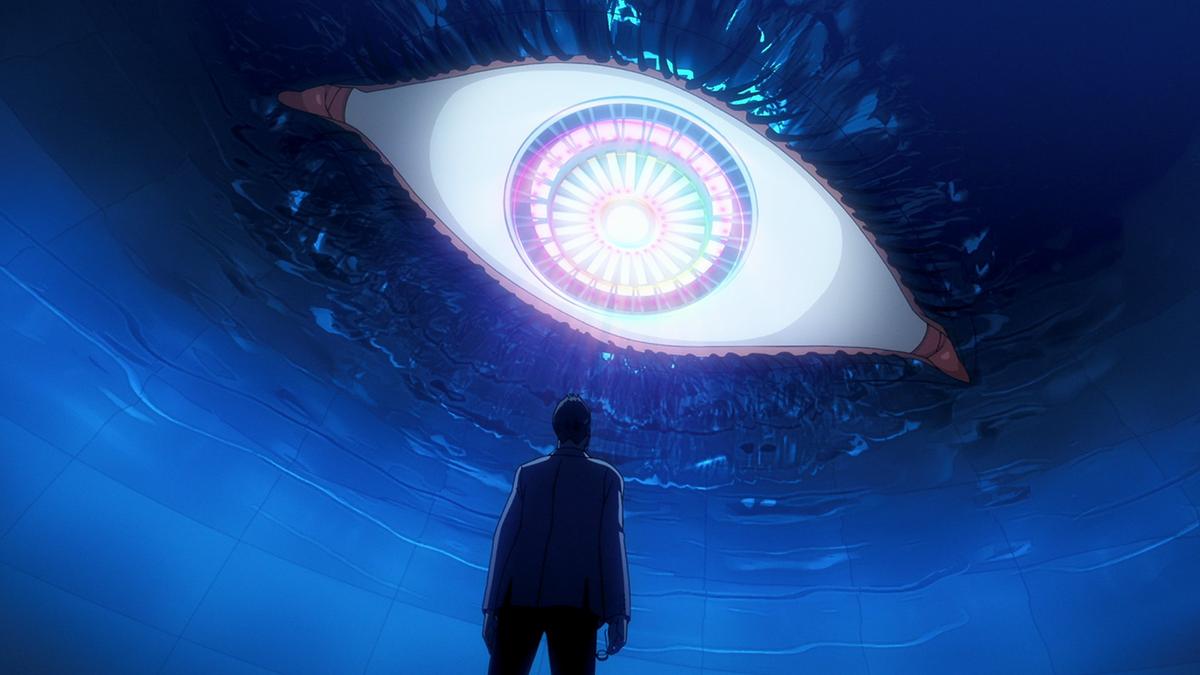
A scene from ‘Terminator Zero’ | Photo credit: Netflix
For a franchise that once defined bleeding edge science-fiction cinema, James Cameron’s fading vision for the series has lately felt like a relic of its own dystopian future. The last few installments — a shoddy tangled mess of tangled timelines and diminishing returns — have seemed more like a refusal to let go than a meaningful continuation of a story that, in truth, ended all the way back in 1991. But just when it seemed like Skynet and its menacing metal henchmen were finally finished forever, Netflix’s latest venture — the latest in a series of successful animated projects — serves as an indispensable system patch that breathes new life into the franchise by asking a new question: What if humanity isn’t worth saving?

For its first animated, let alone anime, outing, the Terminator franchise has taken a bold and necessary leap forward, moving the action from the familiar streets of Los Angeles to the neon-lit haze of 90s Tokyo. Series creator Mattson Tomlin’s decision has reinvigorated the series’ core, not just refreshed its visuals. Directed by Masashi Kudo and brought to life by renowned Japanese animation studio Production I.G, Terminator Zero It wraps its pulse-pounding thrills in alloy around its cerebral, philosophical musings.
Terminator Zero (Japanese)
Manufacturer: Mattson Tomlin
Mould: Yuuya Uchida, Toa Yukinari, Saori Hayami, Atsumi Tanezaki
Episodes: 8
Runtime: 25 to 30 minutes
Plot: The day before Judgment Day, Malcolm Lee finds himself and his three children pursued by an unknown robot killer and a mysterious soldier from the year 2022
The series follows a troubled scientist named Malcolm Lee, who locks himself up with his AI creation Kokoro – Cyberdyne’s Japanese affiliate of Skynet – in a desperate attempt to prevent Skynet’s nuclear attack by bringing it online. But before he can activate it, Malcolm is faced with an existential dilemma. Meanwhile, a relentless T-800 that has sped back in time to eliminate him is pitted against a resistance fighter from the future, as well as Malcolm’s children and their soft-spoken babysitter.

Central to the story is a worryingly prescient conversation that echoes the AI-ridden existential dread of our age: with humanity’s self-destructive tendency toward war and constant conflict, is it really worth preserving? It’s a question posed by Kokoro, and it’s a question that’s sure to be worth reinforcing. Zero There’s a nuance and moral ambiguity to this film that this franchise has never dipped its heavy metal toes in before. The dialogue between Kokoro and Malcolm dives deep into the ethics of artificial intelligence that’s surprisingly relevant.

A scene from ‘Terminator Zero’ | Photo credit: Netflix
Of course, it still is Terminator the universe, and Zero doesn’t skimp on its signature adrenaline rush. The series is filled with the kind of visceral, beautifully choreographed fluidity that anime does so well, which has been sorely lacking in recent live-action franchise installments. But what’s remarkable here is how the show balances these scenes with its more reflective moments. In one moment, we see the devastating fallout of Judgment Day in unflinching detail, and the next, we get to see a quiet, almost meditative conversation on the nature of fate. It’s that delicate balance that Kudo and his team maintain with aplomb.

The series also wisely moves away from an over-reliance on Arnold Schwarzenegger’s iconic but increasingly aging presence. Instead, it introduces a new, terrifyingly efficient T800 – a chameleon-like antagonist who is equally cunning, ruthless and terrifying. Freed from the constraints of live-action, this new Terminator is rendered with a frightening inhuman precision, making him one of the most formidable foes in the franchise’s history.
Complementing its stunning visuals is the combined effort of composers Mitchell Birsky and Kevin Henthorne, who have created an expressive mood-board of musical ideas that gives the series a tenderness beyond its fatalistic premise.
but what really decides Zero Furthermore, he is willing to grapple with the deeper implications of the incident. Terminator The myth. Gone are John and Sarah Connor’s fervent dreams of canceling the apocalypse. In its place, there’s a new perspective on whether the apocalypse might actually be a mercy. The series’ Japanese setting provides a lens through which it explores themes of technological hubris and the stains of history. The shadow of World War II looms over the production, and the decision to drop weapons of mass destruction on the island nation (again) more than makes up for it oppenheimer‘A reductive, glorified omission on the destructive potential of unchecked technology.
It’s still too early to explore certain characters (particularly those haunted by their dodgy pasts) and their implications without giving too much away, but Zero This film succeeds where many previous attempts to revive the franchise have failed because it dares to do something different. It builds on the reclaimed magic of the original and poses provocative new questions for a new generation. Terminator Zero It advocates a return to the old format in favour of a new format that is far more thought-provoking than the ideas put forward by Cameron 40 years ago.
Terminator Zero is currently streaming on Netflix